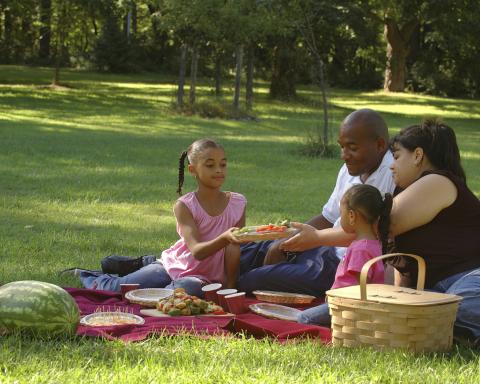Blog and News
Blog & News
Siblings of Children with Special Needs: Discussion
-

Having a sibling with a genetic condition is hard for siblings who do not have a condition. Authentic family centered care and services focus on the whole family, involving all children, and not just the ones affected by a condition. It is never easy to explain to a child that their brother or sister has a genetic condition, but it is important to explain the condition to them early in their life. This discussion should be tailored to their age and more detailed information should be given when the child is ready. Below are a few recommendations on how to successfully have this conversation with your child.
Have an open and honest conversation about their feelings.
Although it may not be pleasant, you should be open to hearing both the difficult and positive aspects of your child’s life. It is important your child knows and feels that they can express themselves without receiving backlash from you.
Tip: Start the conversation with something that is difficult for you to handle having a child with special needs.
Give a clear explanation about their sibling’s condition.
Talk with your child about their sibling’s condition. Give facts about the condition in a straightforward, age-appropriate manner. Susan Linn, psychologist at the Judge Baker Children's Center at Harvard Medical School, says, “…It is best to state the facts that you know with little added emotion or heavy detail3”. With too many details, your child may get lost or may not feel comfortable asking for clarification. Be prepared for your child to ask questions and give honest answers.
Tip: Encourage questions and prepare ahead of time how to answer with suitable language.
Talk about how others may react to their sibling’s condition.
The reactions of others towards your child with a genetic condition can have varying impacts on their brother or sister. Some siblings are very loyal, standing up for their brother or sister; while others, are embarrassed or intimidated2. Talk with your child about their feelings during these times and explain to them that people may stare or say hurtful things because they do not understand.
Tip: Talk about how to respond to these situations and how to explain the condition if asked.
Focus on commonalities within the family.
Show your child that their sibling’s condition does not make them unalike. Speak with your child about the commonalities between them and their brother or sister (i.e. liking baseball, a certain TV show, having a favorite color). By focusing on the commonalities between siblings, you can show that even though they may be different in some ways, they are also similar in others.
As your child grows up, these conversations are going to become increasingly more difficult, but continue to keep the lines of communication open. Remember your child’s genetic condition does not define your family. As a family unit, you can care for one another knowing you have each other’s backs.
Here is a list of books to help your child understand their sibling’s condition1:
Preschool:
Hi, I’m Ben … And I’ve Got a Secret! by Julie A. Bouwkamp
Ages 4-11:
My Brother, Matthew, by Mary Thompson
“Offers a sibling's point-of-view of the ups and downs of life when your brother is born with a disability. David, the older brother, wryly shares the worry, impatience, feeling left out, being talked down to by grown-ups—and the positive ways in which he has built a unique relationship with his brother.”Tween/Early Adolescence:
The Sibling Slam Book: What It’s Really Like to Have a Brother or Sister with Special Needs by Donald Meyer
References:
1. Boyse, Kyla. Siblings of kids with special needs. University of Michigan Health Center. www.med.umich.edu/yourchild/topics/specneed.htm. Updated July 2009.
2. Eccles, Jacquelynne. The development of children ages 6 to 14. (1999). The Future of Children: When School is Out. 9(2): 30-44.
3. Kashef, Ziba. How to talk to your child about disabilities. Baby Center. http://www.babycenter.com/0_how-to-talk-to-your-child-about-disabilities_3657045.bc.
Was this Helpful?
Your input helps us improve the site for parents and practitioners. Leave us feedback about this page.
Was this page helpful?
Ask an Expert
Have a question that’s not answered on Baby’s First Test? Send it to our experts.

Comment on This Post